5. The English Patient (1996)
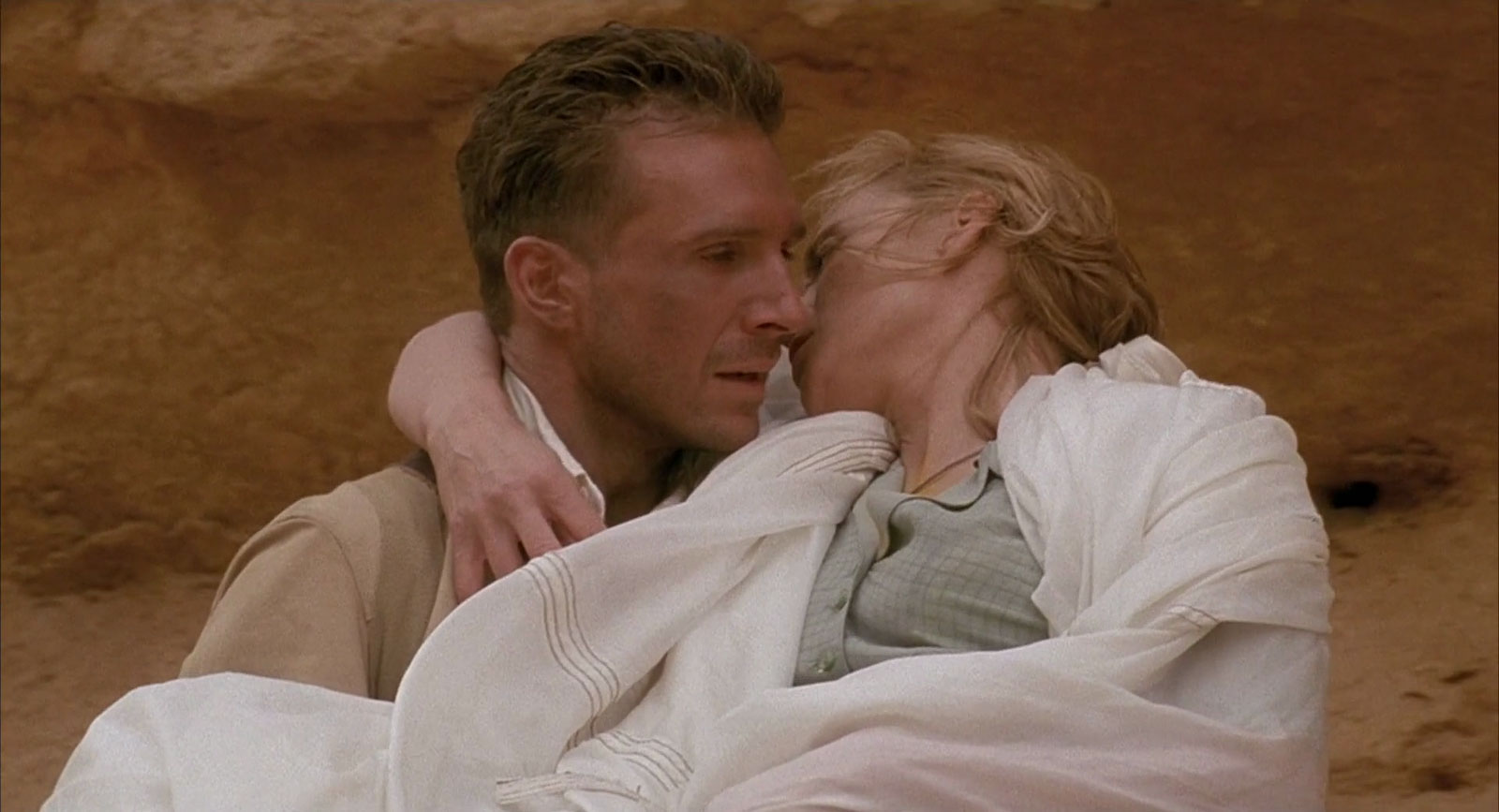
Michael Ondaatje’s 1992 Can-Lit classic and Booker Prize-winning novel “The English Patient” made for an epic, Academy Award-sweeping adaptation for director/screenwriter Anthony Minghella (Truly Madly Deeply [1990]).
Winning nine Oscars overall, including best picture and director, The English Patient has, at its core, a poetic and painful doomed love story starring the eponymous patient, a disfigured due to serious burns World War II pilot, Lazlo de Almásy (Ralph Fiennes). An amnesiac pulled from the wreckage of a biplane in North Africa, his days are sadly numbered.
Under the care of a Québécois nurse, Hana (Juliette Binoche, brilliant), Lazlo recounts his past, particularly his love affair with a married woman, Katharine Clifton (Kristin Scott Thomas), that ends in, yup you guessed it, terrible misfortune.
The labyrinthine plot succeeds due to its passionately romantic classicism and its faultless and rigorously deft designs. Not only does it harken to the grandiose epic cinema of David Lean (his sweeping 1965 epic Doctor Zhivago is further on down this list) it also embraces the chimeric poetry of Ondaatje’s writing, cloaking the production in fascination, mystery, eroticism, and artistic allure. It’s a tour de force of carefully constructed sorrow and lasting reprieve.
4. Farewell My Concubine (1993)
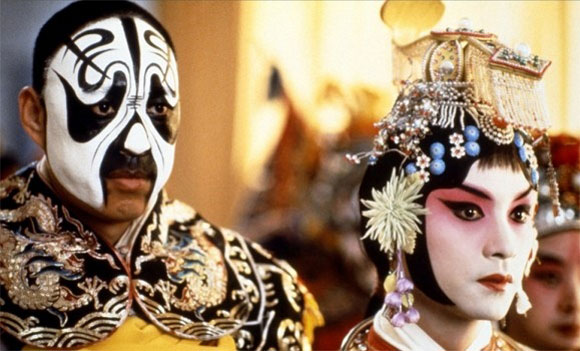
Director Chen Kaige displays his signature flair for lush visuals and epic scope in his historical Chinese romance from 1993, Farewell My Concubine. Adapted from Lillian Lee’s award-winning 1985 novel, “The Hegemon-King Bids Farewell to His Concubine”, and set against the political unrest of the mid-20th century, this Palme d’Or winning film also benefits from a brilliant cast including Leslie Cheung, Gong Li, and Fengyi Zhang.
Opening in 1924 a young Cheng Dieyi (Cheung) starts his training at the Beijing Opera House at the same time as the enchanting Duan Xiaolou (Zhang). Cheng begins to specialize in playing female roles, regularly against Duan’s domineering male leads.
While pretending to be in love with Duan onstage, Cheng soon finds himself having actual romantic feelings for his co-star, which are tragically not reciprocated. Over the next several decades, the two men maintain a complicated professional and personal friendship as China undergoes a similar turbulent and profound change.
Farewell My Concubine unfolds with great and rewarding patience, showing affection not just for the characters, but for the theater as well. Often colorful, formal, and achingly maudlin, the cruelness of fate and the madness of the heart is rarely so elegantly told. At times the film is a history lesson, a social critique, a musical, and a very moving love story.
Time Out’s Geoff Andrews said it well when he praised Farewell My Concubine as “…appropriately operatic, Chen’s visually spectacular epic is sumptuous in every respect. Intelligent, enthralling, rhapsodic.”
3. Gone with the Wind (1939)
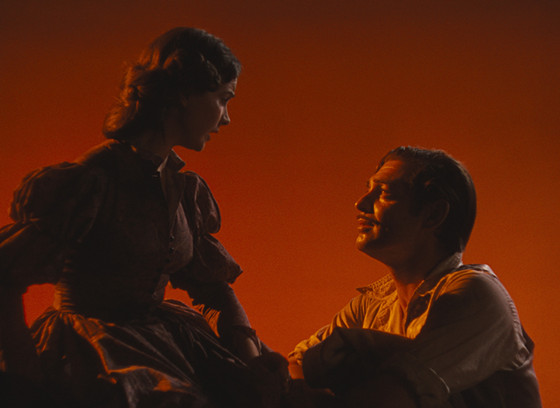
“As magnificent as it is phony, as stereotyped as it is stunning,” wrote film critic Eleanor Ringel, lauding Gone with the Wind as “enduring and immutable, it is what movies are all about.”
Certainly the most magnificent of Hollywood epics, director Victor Fleming’s Civil War drama Gone with the Wind is a marvel of moviemaking and a poetic ballad to the Old South. Faithfully adapted from Margaret Mitchell’s 1936 novel –– and hence the equally epic four hour running time –– this Technicolor extravaganza pulls focus on southern belle Scarlett O’Hara (Vivien Leigh, in a legendary performance), living in idyll splendor on a plantation.
As the film unspools we follow Scarlett’s struggle through the turbulent South during the Civil War and the following Reconstruction. And interwoven throughout is the tangled love affairs Scarlett has with the astute and old school Rhett Butler (Clark Gable) and wide-eyed dreamer Ashley Wilkes (Leslie Howard).
For all of its famed “Fiddle-dee-dees” and unforgettable “Frankly, my dear, I don’t give a damn” utterances, Gone with the Wind paints a sentimental view of the Civil War, of slavery, and of uneven sexual politics. But the nostalgia factor gives most of these a pass, it’s no history lesson, after all, and besides, “tomorrow is another day!”
Gone with the Wind will always be, for better or worse, a towering landmark in cinema history, that nimbly announces a great story, with sentiment and temperament, and well-versed flourish. “As God as my witness, I’ll never go hungry again!”
2. Doctor Zhivago (1965)
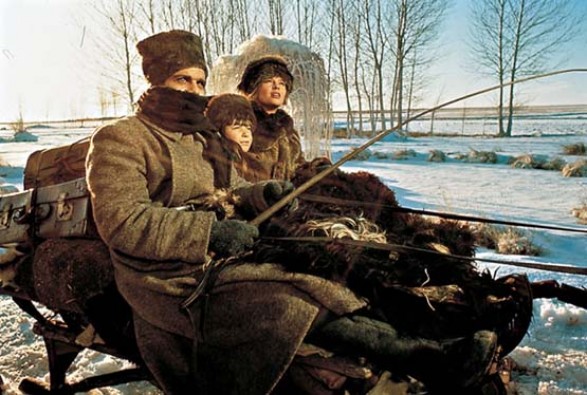
Affectionately adapted from Boris Pasternak’s 1957 tale of the eponymous nonconformist amidst the backdrop of alarming social order, Doctor Zhivago, directed by David Lean (Lawrence of Arabia [1962]) is a monumental motion picture epic.
There’s undoubtable traces of schmaltz amidst the wintry melodrama — buttressed immeasurably by cinematographer Freddie Young — but the old-fashioned elements of the story add a certain validity to the snow-covered symbolism on hand.
Reluctant hero Yuri Zhivago (Omar Sharif) displays tenderness and deep understanding for his wife, Tonya (Geraldine Chaplin), but his heart belongs to Lara (Julie Christie). Their story is unshakable and fraught with sadness as severe as the Siberian winter. A tour de force framed against the declining Czarist era, where bitter winds chip away against fiery passions. A classic.
1. Children of Paradise (1945)
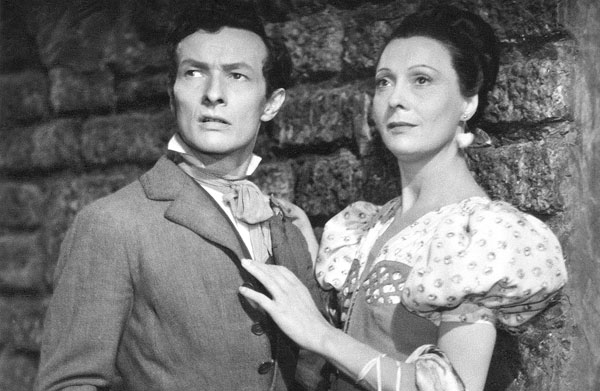
Expansive in scope, poetic and profound in its presentment of nineteenth-century Paris’s theatrical demimonde, Children of Paradise is also French director Marcel Carné’s (Port of Shadows [1938], The Devil’s Envoys [1942]) greatest achievement.
Crestfallen and desperate, Baptiste Deburau (a wonderful Jean-Louis Barrault), is pushed by the carnival throng as the gap between him and his greatest love, Garance Reine (Arletty-Leonie Bathiat, brilliant), in a coach, inexorably widens in one of France’s, and therefore all of cinema’s, greatest ever love stories.
Children of Paradise somehow transcends its place and its time — it was filmed during an occupied France, its very existence and enduring success considered a triumph for French culture over the brutal Nazi regime — resulting in a timeless romance that, while tragic, buzzes with life, light, and affirmation.
Author Bio: Shane Scott-Travis is a film critic, screenwriter, comic book author/illustrator and cineaste. Currently residing in Vancouver, Canada, Shane can often be found at the cinema, the dog park, or off in a corner someplace, paraphrasing Groucho Marx. Follow Shane on Twitter @ShaneScottravis.